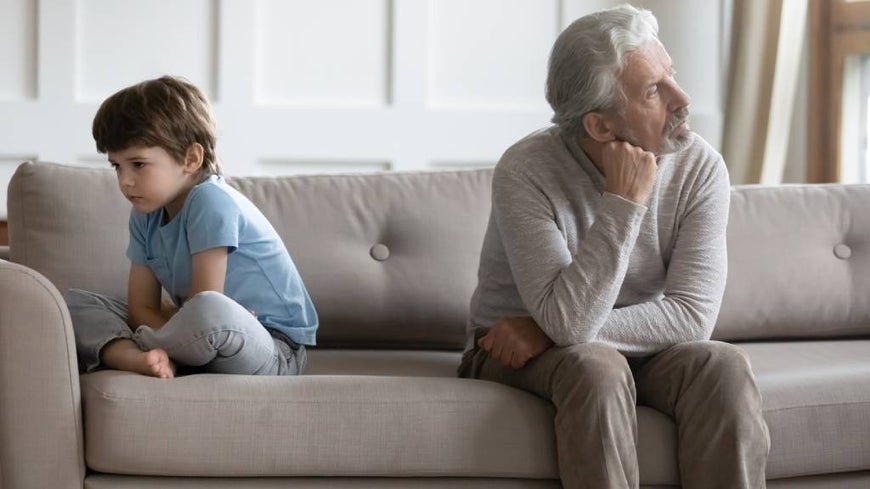How to cope when you’re not allowed to see your grandchildren

Written by Beverley Hadgraft for Australian Seniors.
As manager of separation services at Relationships Australia Western Australia, Michelle Goodwin often sees grandparents caught up in the fallout of messy separations, when the parents of the grandchild part acrimoniously. This sometimes results in the grandparents losing contact with their grandchild. She says her best advice to the grandparents is to always aim for mediation first and to approach an organisation such as Relationships Australia early to avoid litigation and hostility. “Start from a position of empathy and curiosity,” says Michelle. “As soon as you go down the road of acrimony, it’s hard to come back.”
Children’s rights trump all the others
Sometimes the residential parent (usually the mother) has safety concerns about the ex-partner, the estranged grandparents’ child, and worries that if grandparents have access, the children’s other parent will also have access.
“To consider your own child might not be safe to have around your grandchildren is hard, but even if you don’t agree, it’s helpful to have some curiosity,” advises Michelle.
“If unsafe driving is the issue, then say, ‘We’ll always be the ones who drive the children.’ You’ll have lost nothing and gained access to your grandchildren. You may need to tell your child you support them but also that you are going to be amicable with their ex for the sake of your grandchildren.
“Parents’ and grandparents’ rights are important, but children’s rights trump all the others,” she continues. “Ask yourself, ‘What’s more harmful to our grandchildren: conflict in court or a time when, unfortunately, we won’t see them but are working towards it?’”
Be empathetic and understanding
Michelle says that good communication and a willingness to negotiate are key. “Always be as collaborative as you can and have realistic goals,” she says.
It’s also crucial to follow court orders, even if you don’t agree with them. Michelle says she has seen grandparents allowed access to grandchildren, who then allow their child to see the kids, even though their child has been banned because of drug or health issues. The result? “Those grandparents were not allowed to see their grandchildren again.”
Other options
For grandparents who’ve tried everything but still can’t see their grandchildren, there are options to keep doors open. Michelle supervises Skype video calls with grandchildren to build relationships. “We also counsel grandparents who write letters to their grandchildren. We then facilitate the children hearing those letters, because if they’re posted to their home, they’ll be put in the bin.”
Similarly, if a court has ruled a grandparent may send presents, Michelle recommends asking for the orders to state the child should pick the gifts up from a contact centre. “That way you take the binning option off the table,” she says.
Is it necessary to involve the courts?
Family law solicitor Sandra Kelly agrees that messy separations are the main reason grandparents lose contact and that family dispute resolution is the best way forward. “If that isn’t successful, the next step is an application to the Federal Circuit Court seeking an order to spend time with the children.”
However, she warns, “The process is long and arduous. The court must satisfy itself that it’s in the children’s best interests to have a relationship with the grandparents and the grandparents need to produce evidence of past experience with the children, outlining their relationship.”
The Family Relationship Advice Line on 1800 050 321 can recommend government-funded mediation services. Or visit legalaid.nsw.gov.au
9 Jun 2021